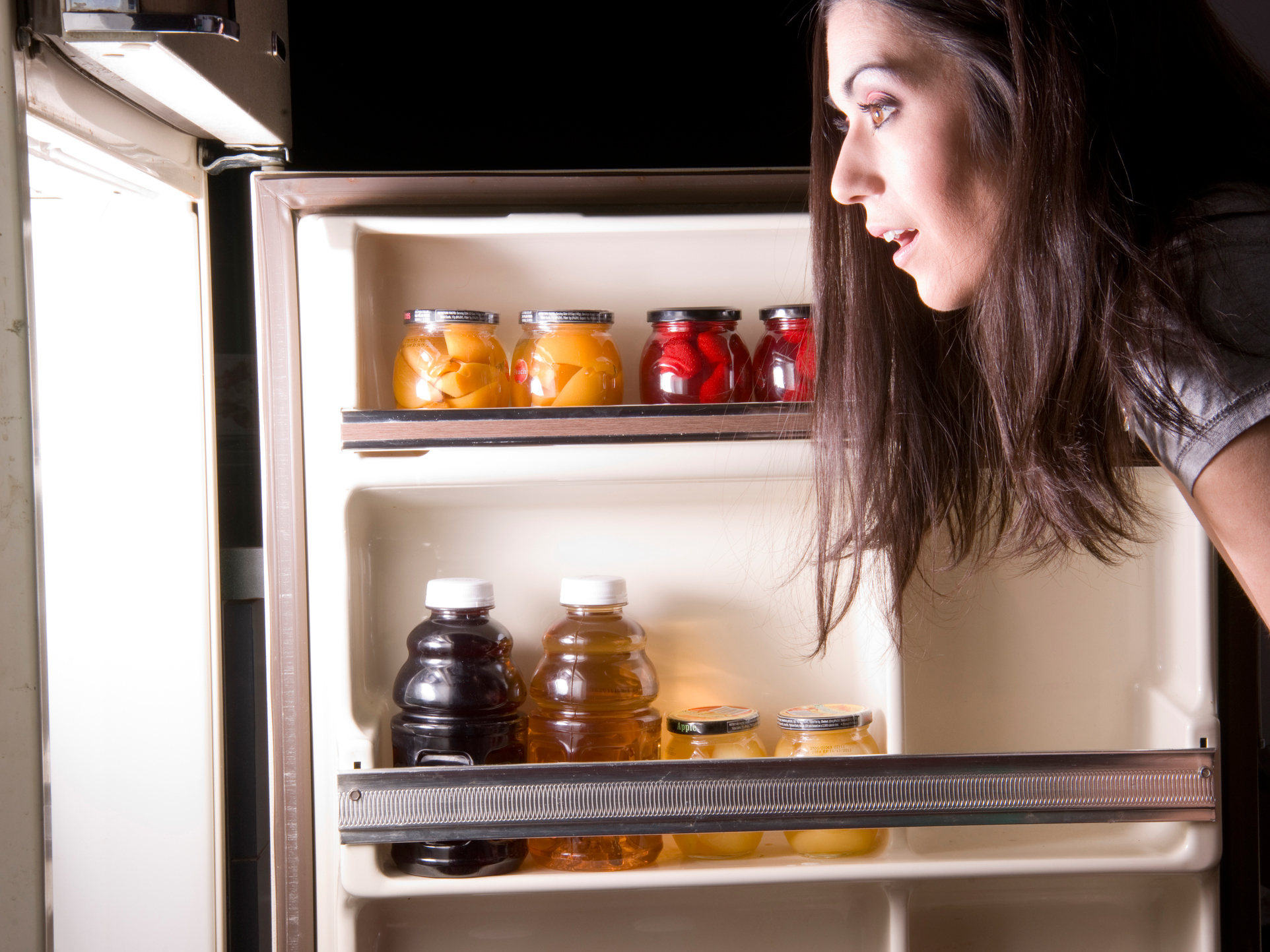Get Easy Health Digest™ in your inbox and don’t miss a thing when you subscribe today. Plus, get the free bonus report, Mother Nature’s Tips, Tricks and Remedies for Cholesterol, Blood Pressure & Blood Sugar as my way of saying welcome to the community!
What that late-night snack does to your heart

A late-night snack is a hard habit to break. It takes a lot of willpower to not pour that bowl of cereal at 9 pm when your stomach starts to rumble. Or finish that whole bowl of popcorn while you catch up on Dancing with the Stars. Or mindlessly munch on chips while you scroll through your Facebook feed on the couch.
But sometimes all you need to break a bad habit is a simple reminder, like this one — your body is built to eat during the day.
Your metabolism, circadian rhythm, cortisol/insulin cycles are closely tied to the cycles of day and night. And the fact is, these body functions struggle to keep up with the food you eat at night. Night-time, after all, is a time for the human body to rest, not digest food.
You’re also less active at night than during the day, which means your body doesn’t burn the calories you consume during night-time snack sessions. That leads to weight gain, of course. But I’ll be honest, weight gain is far from the biggest problem caused by evening eating…
A new study shows that a late-night snack can even take a toll on vital organs, like your heart.
Evening eating causes heart disease risk factors to rise
A study from researchers at Columbia University found that women who ate more calories at night had poorer heart health.
The study included 112 women who researchers tracked for a year. Their heart health was assessed at the start of the study and at the end of the study. Women also kept a food diary for a week at the start of the study and for a week at the end of the study. And guess what?
Women who ate more calories in the evening had higher blood pressure, higher body mass index and poorer long-term control of blood sugar. All of these are risk factors for heart disease.
Related: 5 easy ways to conquer food cravings
Researchers determined that for each one percent increase in calories consumed after 6 pm, heart health declined proportionately. And it declined even worse for every one percent increase in daily calories consumed after 8 pm.
The good news?
Changing when you eat could be a simple way to reduce your risk of heart disease. But like I’ve said many times before, simple doesn’t mean easy…
How to squelch your late-night snack habit
Personally, I don’t think it’s any easier to stop eating at night than it is to eat salads instead of burgers. If you’ve developed a habit, it’s going to take willpower to change it. Period. But if it means protecting yourself from heart attacks, strokes, and other cardiovascular dangers, you might be able to muster up more willpower than you knew you had.
The question is… how exactly do you break your bad habit of a late-night snack? Especially if you’ve been doing it for a long time. Here are a few suggestions:
- Plan dinner ahead. Your body prefers if you eat dinner by 6 pm. And it’s a lot easier to do that if you plan dinner ahead. If you know what you’re going to eat and you have all the ingredients in the fridge, it’s much easier to pull dinner together than if you’re heading to the grocery store during the dinner rush trying to find something. If you’re working full time, signing up for meal kit services like Hello Fresh or Sun Basket can make it easier to eat an early (and healthy) dinner.
- Eat enough during the day. If your days are busy, there’s a good chance you’re eating grab-and-go meals that aren’t satisfying enough. If you don’t eat enough during the day, it’s no wonder you want a late-night snack. Keep track of your calorie intake during the day and make sure you’re eating enough. Sometimes, simply eating a bigger breakfast and lunch (the two meals we’re most likely to skimp on when we’re busy) makes you less hungry in the evening. Also, make sure you’re eating satisfying, nourishing foods during the day like vegetables, fruits, organic meats, legumes, and whole grains.
- Pay attention to snacking triggers and stress. Often, evening eating comes down to two factors: mindless behavior and stress relief. A lot of people want to snack when they watch TV or surf the web even if they’re not hungry. If certain behaviors trigger mindless eating, avoid them. Also, pay attention to how you’re managing stress. Zoning out on TV, surfing the web and mindless snacking are stress-relievers for many people after a long day. But you can always find healthier sources of stress relief. If you replaced TV time with a relaxing yoga class, for example, you’d still be relieving stress. But you’re much less likely to open a bag of chips during yoga.
Editor’s Note: You may have heard the news report recently that popular heart treatments aren’t cutting it. It’s time to discover the truth you won’t find at your doctor’s office! Before you submit to any heart treatment, read this FREE report…
Sources:
- Evening meals could harm the female heart, study shows — MedicalXpress
- 10 Clever Ways to Stop Eating Late at Night — Healthline













